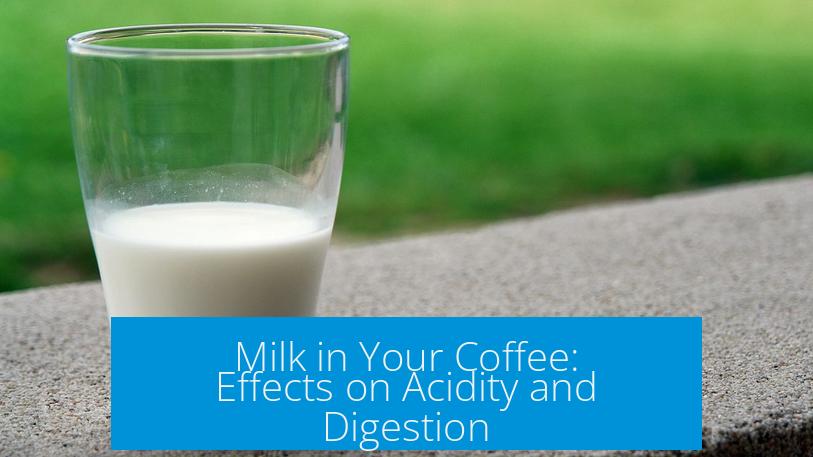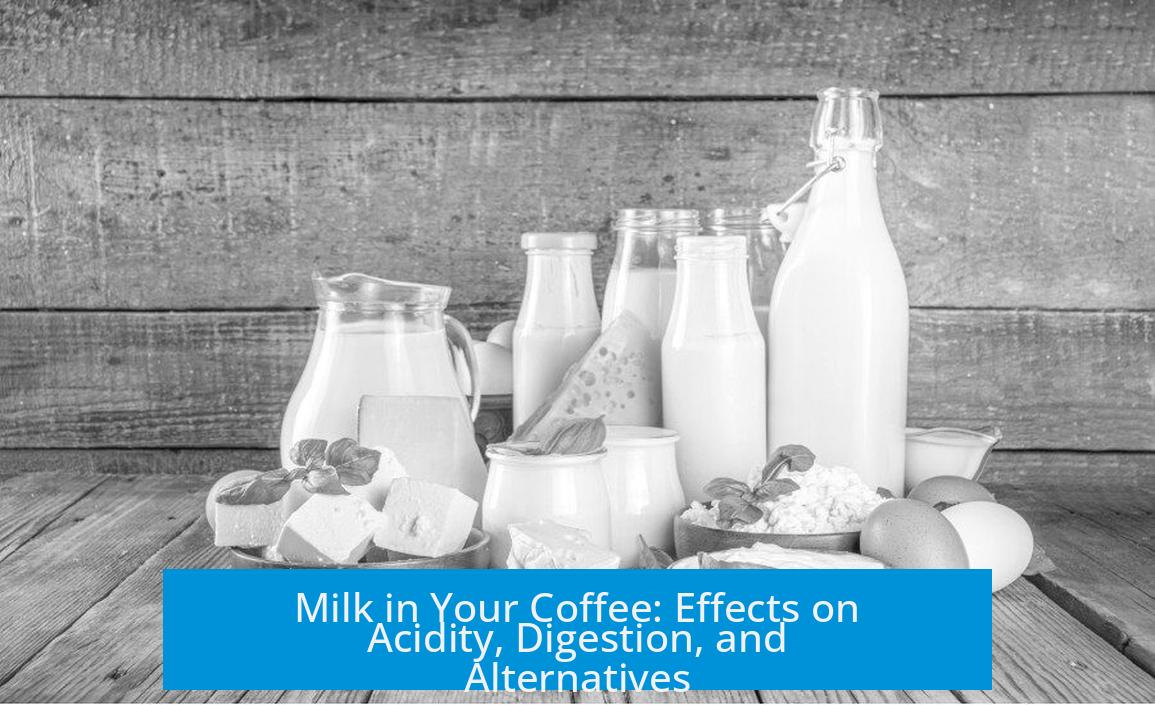Milk in Your Coffee: Effects on Acidity and Digestion
 Adding milk to coffee can help buffer some of coffee’s acidity, making it less harsh for people with sensitive stomachs who are not lactose intolerant. This happens because milk contains proteins and fats that can neutralize the acid to a degree. Milk’s own acidity is mild, mainly due to lactic acid, but it is less acidic than coffee. The lactose and proteins in milk act together to moderate the overall acidity in the beverage.
Adding milk to coffee can help buffer some of coffee’s acidity, making it less harsh for people with sensitive stomachs who are not lactose intolerant. This happens because milk contains proteins and fats that can neutralize the acid to a degree. Milk’s own acidity is mild, mainly due to lactic acid, but it is less acidic than coffee. The lactose and proteins in milk act together to moderate the overall acidity in the beverage.
How Milk Buffers Coffee Acidity
Coffee typically has a pH around 5, making it mildly acidic. Milk is slightly acidic as well but closer to neutral and contains components that can bind or dilute coffee acids. The fats and proteins in milk provide a buffer effect, which means they can reduce the impact of acid in coffee on the stomach lining.
However, scientists note this buffering mainly helps people sensitive to acid and digestive discomfort but not those with lactose intolerance. For lactose-intolerant individuals, adding milk may cause digestive upset unrelated to coffee acidity.
Misconceptions About Acidity
- Stomach acid is much stronger (pH ~2) than coffee, so stomach upset from coffee is not simply caused by acidity.
- Some believe caffeine is the main cause of stomach discomfort, not just acid.
- Milk dissolves fat-soluble compounds like capsaicin but this mechanism differs from acid neutralization.
Other Effects of Milk
Milk can help protect teeth by counteracting acidic foods or drinks. Dentists sometimes recommend milk to reduce acid effects before brushing. When mixed with highly acidic substances, milk may curdle, indicating interaction with strong acids.
Alternatives to Milk
Some people find adding baking soda to coffee reduces acidity and improves tolerance. This is a more direct chemical neutralizer than milk’s buffering effect.
Summary of Milk’s Role in Coffee
| Aspect | Effect |
|---|---|
| Acidity | Milk is less acidic than coffee and buffers coffee acids through proteins and fats |
| Stomach Sensitivity | Helpful primarily for sensitive individuals; ineffective or harmful for lactose intolerance |
| Caffeine | Caffeine rather than acid may cause stomach issues |
| Dental Health | Milk can help neutralize acids on teeth |
- Milk buffers coffee acidity through proteins and fats, moderating stomach irritation.
- This buffering mainly benefits people without lactose intolerance.
- Caffeine content may be a key factor in coffee-induced stomach upset, not acidity alone.
- Milk has dental benefits by reducing acid effects on teeth post-consumption.
- Other methods like baking soda can neutralize coffee acidity more directly.
Does milk reduce the acidity of coffee in the stomach?
Milk contains proteins and fats that can buffer stomach acid. However, the acidity of coffee is mild compared to stomach acid. Milk may help some people but its effect on acidity is limited.
Can milk help if you have a sensitive stomach but are lactose intolerant?
Milk may only help those who are not lactose intolerant. For people with lactose intolerance, milk could worsen stomach discomfort.
Why does milk seem to reduce the burn from spicy food, and is this related to coffee acidity?
Milk dissolves capsaicin, the compound in spicy food, because it is fat soluble. This is unrelated to buffering acidity in coffee, which is a different process.
Is milk acidic or basic, and how does that affect its interaction with coffee?
Milk is mildly acidic due to lactic acid but is generally less acidic than coffee. It acts more as a buffer than a strong acid or base.
Can drinking milk protect your teeth from coffee acidity?
Milk may help reduce the effects of acidity on teeth. Some dentists recommend it to neutralize acids before brushing.
Does the caffeine or the acidity in coffee cause stomach upset?
Caffeine is often the main cause of stomach discomfort. The acidity of coffee plays a smaller role, especially since stomach acid is much stronger.





Leave a Comment